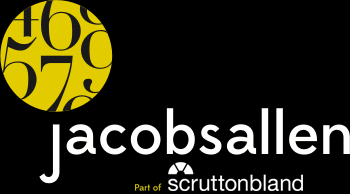Job Support Scheme (JSS) and Calculation Tool
Click here download the Jobs Support Scheme Calculation Tool.
The Chancellor announced on 24 September 2020 that this new scheme will replace the Coronavirus Job Retention Scheme (CJRS) when that scheme ends on 31 October. From 1 November, this replacement JSS is less generous than furloughing has been – even at its current reduced level of operation – but it does provide some useful and welcome support. It is targeted at employees whose jobs are ‘viable’ in the longer term, as stated by the Chancellor and is stated to last for a six- month period.
Under the JSS scheme, support is given to employers whose employees have returned to work part-time and work for at least one third of their usual hours, as defined in the same way as in the furlough scheme (CJRS). The rules for the first 3 months of the JSS scheme, from 1 November 2020 to the end of January 2021 are as follows.
As long as an employee is working at least 33% of their usual hours, the government will help to pay wages for the hours not worked. Employers will pay wages for the hours worked at the usual rate of pay as defined, plus 1/3 of the usual rate of pay for the hours not worked. The government will then pay 1/3 of the wages for the hours not worked, capped at £697 a month. So, an average employee working 1/3 of normal hours would be paid 77% of their normal wages, 22% funded by the government and 55% by the employer. The employer will be responsible for paying employer National Insurance and pension contributions and the grant will not cover these.
Because this JSS scheme is targeted at those employers who need support for difficult trading conditions during the winter, it is expected that the scheme will not apply if employers choose at their own expense to top up their employee wages to more than the two thirds allowed for the hours not worked.
Employees can work different shift patterns each week or month and move on and off the scheme during the three months, but each short time working arrangement must cover a minimum of a seven-day period. Employees cannot be made redundant or put on notice of redundancy whilst their employer is claiming the Job Support Scheme grant.
It will be for the employer to claim the grant in the same way they have for the CJRS usually on a monthly basis. All employers with a UK bank account and UK PAYE scheme can claim the grant. They do not need to have previously claimed the Coronavirus Job Retention Scheme grant. Employees are covered if they were on a PAYE payroll before 24 September 2020.
The grant can be claimed in addition to the £1,000 Job Retention Bonus where a previously furloughed employee is brought back to work and continuously employed through to January 2021.
All small and medium sized businesses are eligible. For large businesses, which have yet to be defined, to be eligible, they will have to show that they are experiencing difficulties due to Covid-19, banned from paying dividends to shareholders and from share buy-back arrangements.
Grant payments will be made to employers in arrears, claims will need to be made after the employee has been paid and the payment reported to HMRC on an RTI return.
Revisions to the scheme, expected to include increasing the percentage of normal hours which an employee must work, will later be announced to cover its second three months of operation – February to end of April 2021.
HMRC has said they will be checking claims, as for the CJRS and that incorrect or erroneous claims should be notified and amounts repaid or penalties might apply.
Employers need to make contractual arrangements with their staff and notify each employee in writing for the scheme to be used. Such written arrangements can be called for by HMRC.
Further details of the JSS will be announced, but for now we have produced a simple calculation tool that can be used as a guide to determine the gross pay an employee receives and the cost to the employer.
Click here download the Jobs Support Scheme Calculation Tool.

